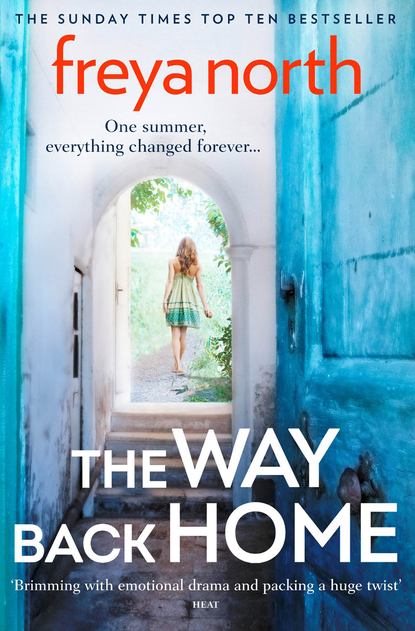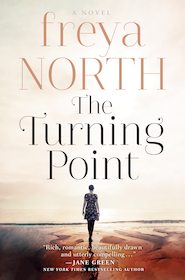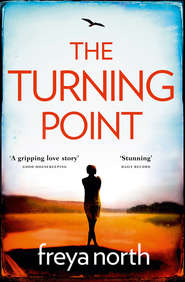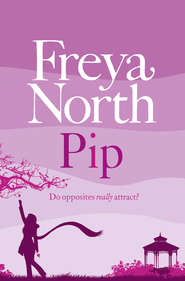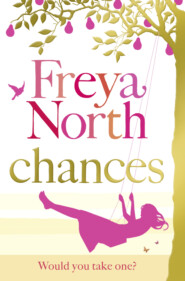По всем вопросам обращайтесь на: info@litportal.ru
(©) 2003-2024.
✖
The Way Back Home
Автор
Год написания книги
2018
Настройки чтения
Размер шрифта
Высота строк
Поля
‘You know I don’t. You know that.’
‘I just thought—’
‘Well, don’t.’
‘You’re a lot older now, Oriana – and he’s not getting any younger.’
‘What’s that meant to mean?’
‘It means—’
‘Have you seen him?’ Oriana made the notion sound just as preposterous.
‘No – but that’s different.’
‘How so?’
‘He’s your father – for all his faults, he is still your father.’
How long? When was the last time? Oriana rifled through fading memories, their chronology confused, as if sifting through a disintegrating pile of documents.
‘Louis Bayford’s funeral,’ Oriana said.
Her mother paused. ‘That was the last time I saw him, myself. But you didn’t stay. You left straight after the service. You disappeared. He never knew you were there.’
Nor did Malachy or Jed. Oriana plucked at the seam on a scatter cushion. That funeral. Five years ago? Six? She had sat at the back of the church, away from everyone, hiding down into her coat, fighting the urge to stare at the backs of their heads, Jed and Malachy; praying neither would turn and see her. She couldn’t even remember seeing her father there.
She’d left as soon as she could – to avoid him not so much as them.
CHAPTER FOUR (#ulink_92f914c3-bbec-5963-b315-c0266ce1da5d)
The doorbell had never worked and the knocker had fallen off many years ago. There had been a cowbell once – but that was now by the hearth because Django McCabe found it the perfect surface off which to strike Swan Vestas when lighting the fire. A bitterly cold March day meant knocking on the old wooden door was not an option – even in balmy weather, bare knuckles on dense wood was a painful thing and, because of the door’s thickness, pointless anyway. So Oriana did what everyone did, what she’d always done – she opened the perennially unlocked door, stepped inside and called out knock! knock!
It was Cat’s suggestion to meet here, at the old house. She told Oriana that Django was ill though you wouldn’t know it. That it would do him good to have a guest, that he’d cook up a storm in her honour. Their phone call had been brief, excited, fond. The arrangement had been made for today, Thursday, a week to the day of Oriana’s return.
‘Knock knock?’
Django appeared, resplendent in Peruvian cardigan and citrus yellow corduroys. His hair was the colour of gunmetal and platinum and his beard was in a goatee, styled to a rakish point. On his feet, the clogs Oriana remembered so well. She had the strangest urge to run to him, to hold on tight, as if she’d just imbibed a Lewis Carroll potion that had hurled her back to childhood. From the kitchen came drifts of Classic FM, something manipulatively rousing like Elgar or Vaughan Williams. Also, wafts of an olfactory clash of ingredients. Everything about Django McCabe, about his household, was centred on the happy collision of seemingly disparate elements. It was a thoughtful serendipity. It was unbelievably genuine. In America, when holding court amongst her friends and telling them of her crazy technicolour upbringing, Oriana had shamelessly appropriated many of the details from here and transposed them to her home at Windward.
‘Oriana Taylor,’ he marvelled, taking her hand with great reverence. ‘Oriana Taylor. Well, heavens to Betsy.’
‘Hey, Django,’ she said and she felt as if she was ten, or seven, or fourteen. The slab stone floor underfoot, the peculiar and lively smells from the kitchen, the creak of the house, and the balding kilim in the middle of the floor. It was familiar and a comfort because while her life had gone on regardless, all this had remained just as it should be.
And then Cat appeared with a beaming smile and arms outstretched. ‘Oh my God, Oriana!’
‘Oh my God, Cat – you’re pregnant!’
There’d been no need for apologies or excuses or even explanations for the silent months. Their friendship had never lapsed, it had simply loitered where they’d left it whilst time had flung forward.
‘So,’ said Oriana, ‘it can be done.’
They were curled at opposite ends of the sagging Chesterfield sofa.
‘Yes,’ said Cat, ‘you have sex at the right time and bam! baby on board.’
‘I meant the move back to the UK?’ And, just momentarily, the gleam left Oriana’s eyes.
‘Are you not back for good, then?’
‘For better, for worse,’ Oriana shrugged.
‘It’s amazing how fast you’ll settle back into the groove. And Casey?’
Being evasive with her mother was one thing. With Cat, it was unthinkable.
‘No.’
‘No?’
‘No more Casey. But it’s all fine – bless him.’ She was rattling off the words like a mantra. ‘Moving back here is the best thing I could do for him too. I mean, I know the United States is huge – but there’s space and then there’s distance. Sometimes, you need more than merely miles to move on. Sometimes you need time zones.’
‘And you’re OK?’ Cat pressed, because Oriana’s voice had been expressionless. ‘Really OK?’
‘I am dandy.’ But still Cat was regarding her. ‘We’d come to the end. It was my call.’
‘When?’
‘A while back,’ said Oriana. ‘Well, three, four months.’
‘Poor Casey though, having left his—’
‘I need a glass of water, a cup of tea.’ Oriana had both in front of her but her mouth was suddenly dry. If Cat could just leave the topic while she went to fetch a drink. ‘Want anything?’
‘More space!’ The baby was wedged under her ribs. ‘How’s your ma?’
‘Suburban,’ Oriana said, returning. ‘You wouldn’t believe it.’
Cat shook her head. ‘I haven’t seen her for years. No one has. I still find it bizarre – how she traded one life for another so diametrically opposed. How is Boring Bernard?’
Oriana flinched at the moniker they’d given him as teenagers. ‘Do you know, he’s just – normal.’
Cat thought about it. ‘I suppose we confused normal with boring.’
‘That’s because both of you grew up not really knowing any normal people,’ said Django, suddenly appearing with a wooden spoon that appeared to be covered in sweet-smelling tar. ‘Which was a blessing and a curse. For my part, I apologize. Come on, lunch.’
The kitchen. How she’d always loved the McCabes’ kitchen. Despite the size of her own childhood home, Oriana’s family kitchen had been pokey. And it had been underused. As unconventional as the McCabes’ household had been – three young girls living with their eccentric uncle – it had always felt fundamentally stable to Oriana. And Django – as bonkers and outspoken as he was, he always put food on the table. The ingredients were peculiar, but mealtimes were sacred; they sat down as a family to eat. Throughout her life, she’d often arrived there hungry and wanting. And she’d always left nourished.
‘Is that cannabis?’ said Oriana.





